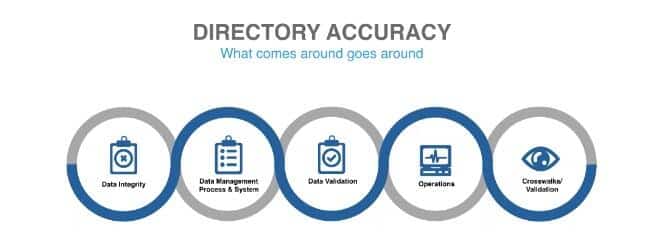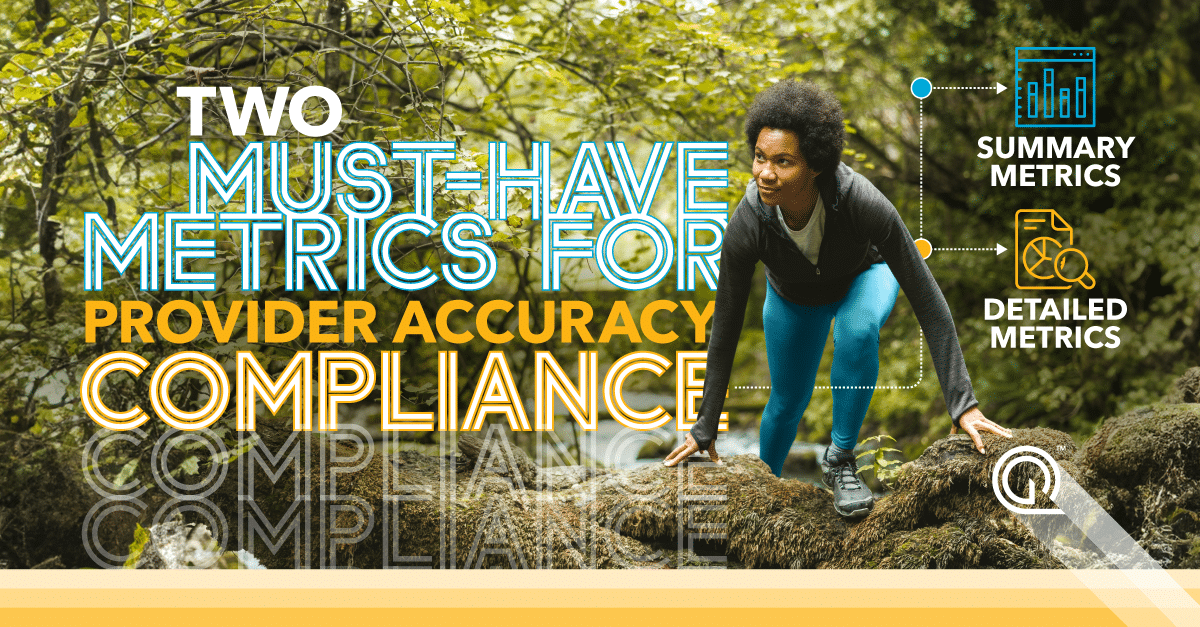This month our webinar featured Gorman Health Group, Oliver Wyman, and Get Governed. These organizations work with many health plans to tackle provider data challenges. Our presenters shared their unique perspectives on how health plans have managed data.
We heard from:
- Ellie Martin, Senior Director of Provider Innovations at Gorman Health Group
- Frank Roberts, Engagement Manager at Oliver Wyman
- Morgan Templar, CEO at Get Governed
- Andrew Kobylinski, Head of Platform at BetterDoctor
We learned that health plans, health systems, and groups will have to make provider directory data accuracy a part of their ongoing operations. On the regulatory side, we delved deeper into what questions audits are focusing on to make sure that organizations plan their internal processes accordingly. And lastly, we discussed how providers would benefit from accurate provider data on several levels including how to refer patients to the right providers.
Watch a video recording of webinar here.
Successful Provider Data Management Requires Ongoing Operations Process
Leaving provider data management to periodic monitoring is no longer an option. The health plans who successfully manage their provider data make it a part of their ongoing operations. Ellie Martin talked about how health plans must think about how data is held, how it is accounted for in different requirements for different filings and lines of business.
She argues that managing provider data is now a part of life and it has been difficult for many health plans to adopt in a way that effectively yields tangible results. Audits have been tough to deal with, and now it’s important to have processes and resources as part of operations that generate results.
As Ellie puts it, “If your GPS were correct only 13 percent of the time, you would not be very happy.” She says that provider data quality has not been taken to heart completely. Now that CMS audits are underway, there is mounting pressure to make sure that we are doing everything we can as an industry to be correct.
Inaccuracies in data impact everything. Health plan sales reps might incorrectly represent networks to employers based on inaccurate data, for example. And with the consumerization of healthcare in full force, shoppers urgently need the right (online) information to choose the proper care. Health plans must continually monitor, audit, and update data. She recommends a monthly network adequacy report for management that will keep everyone in an organization on the same page about where data accuracy stands.

Above illustration from Ellie Martin, Gorman Health Group.
What Questions do You Need Answering to Be Audit Ready?
Morgan Templar, from Get Governed, has worked with regulators and health plans for many years. She shares the fundamental questions regulators need to be answered when they are performing audits: “What doctor can I see with my insurance coverage?”, “How do I contact a doctor to make an appointment?”, “If they send me to the hospital, will the charges be covered?”. These three questions are the crux of what matters for regulators looking at data quality.
Morgan walks us through the attributes that CMS audits have focused on to support a patient’s access to care. These attributes are: provider name, address of practice location, phone number, quality scores, cost transparency, and affiliated hospitals.
She shares how health plans waited to receive information from doctors in a more passive way. Now health plans must adopt proactive validation strategies and perform outreach to providers to keep data accurate at all times.
Understandably, this is not an easy task. One barrier to accurate data is that providers are not held accountable for updating their data. It is the health plans and payers that get penalized for having inaccurate data. One of the areas the industry could improve is making provider data accuracy a shared responsibility. The industry must figure out a way to enhance the experience for providers and have a better flow of information between provider and health plan/health group.
How Can Accurate Provider Data Help Providers?
Fixing inaccurate data will benefit providers and allow them to do their job more efficiently. Frank Roberts, Engagement Manager at Oliver Wyman, explained how providers need accurate data to refer patients to specialists. If providers don’t have the correct data about other providers who they need to refer patients to, care gets compromised. What’s more, inaccurate data interferes with the analytics providers need to practice effectively.
He explains, “without accurate data, the analytics that providers need to improve their practice will not work.” Oliver Wyman wants to be able to identify like-physician cohorts to provide physicians with accurate and actionable reports to help their patients.
Our presenters made it clear that regulators, health plans, and providers want, demand, and need accurate data. We share a common problem, and we all have a role in the solution.
Thanks to everyone who joined and participated in the webinar!
Watch video recording here.










